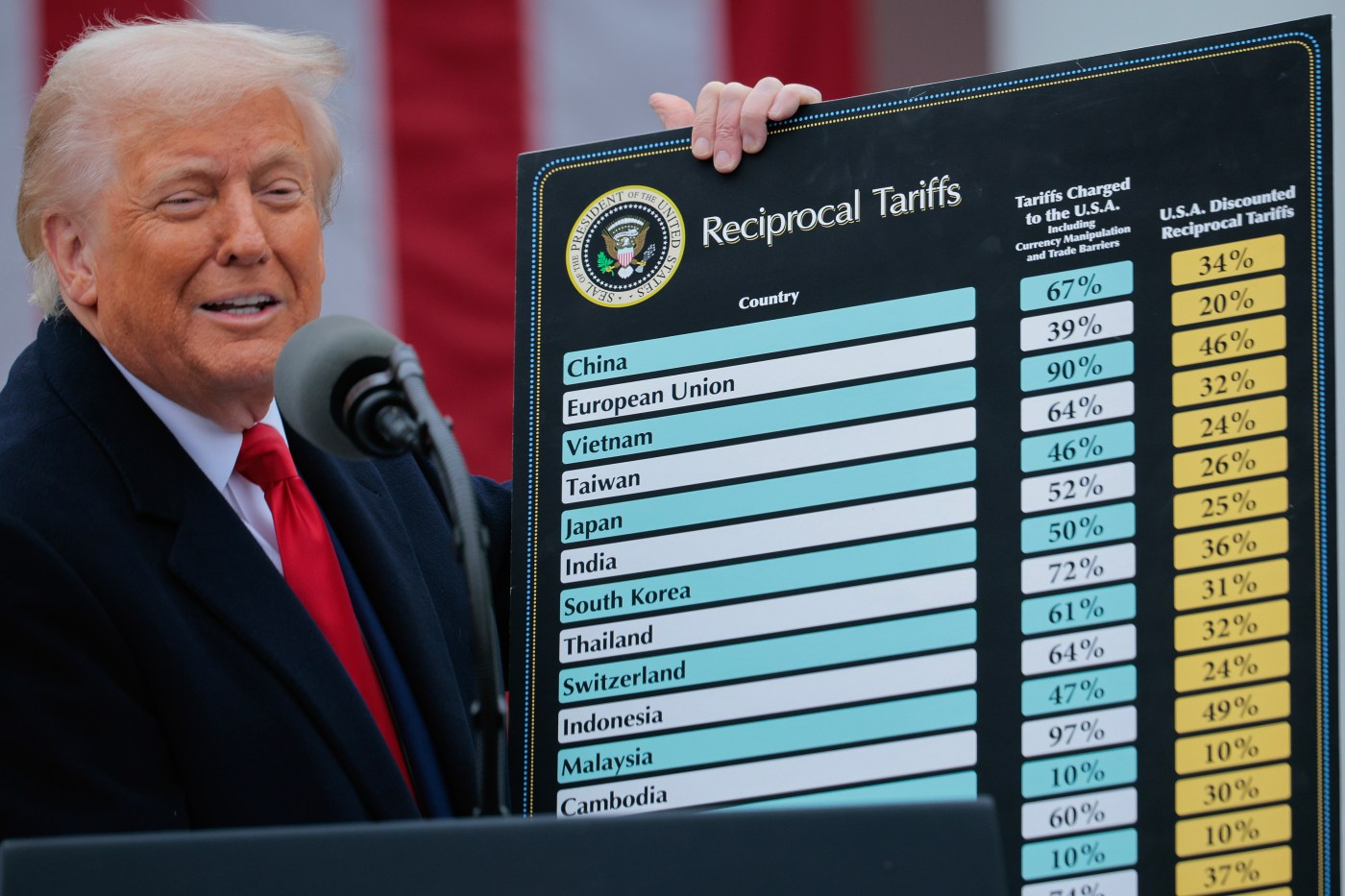Politics
Supreme Court Questions Trump’s Tariffs: Legal Authority at Stake

A recent hearing at the U.S. Supreme Court has raised serious concerns about former President Donald Trump’s attempt to impose tariffs using a provision of emergency economic powers. Many justices expressed skepticism regarding this approach, which lacks legal grounding for the broad tariff rates affecting numerous countries. This action could undermine the authority of Congress, which traditionally holds the power to regulate taxation and trade.
Trump’s tariffs have been characterized as a means to address a perceived “trade deficit emergency,” as stated by Solicitor General John Sauer. However, the administration has yet to clarify the nature of this emergency. Critics argue that the notion of needing to balance trade relationships globally is not only impractical but also economically flawed. The implication that the United States must avoid trade deficits with every nation raises questions about the economic rationale behind such policies.
Concerns Over Economic Impact
Various economic analysts have pointed out that Trump’s tariffs have contributed to instability in markets both domestically and internationally. The imposition of these tariffs has led to increased prices for American consumers and has placed significant pressure on certain industries. The repercussions extend beyond immediate financial impacts, affecting global trade dynamics and consumer confidence.
The Supreme Court’s deliberations come amid a backdrop of lower court rulings deeming Trump’s tariffs unlawful. Several judges have already concluded that the former president’s actions exceed the bounds of legal authority. This situation underscores a critical issue: the balance of power among the three branches of government established by the Constitution.
Legal experts suggest that allowing the executive branch to unilaterally dictate trade policies could set a dangerous precedent. The checks and balances inherent in the system are designed to prevent any one branch from overstepping its authority. The justices appear to recognize that permitting such actions could lead to significant changes in the governance of the U.S. economy.
Looking Ahead: Legal and Political Ramifications
As the Supreme Court weighs its decision, there are indications that Trump may seek ways to circumvent any ruling against his tariff policies. This possibility raises further legal questions about compliance with the law and the limits of executive power. Observers note that any attempt to bypass the Court’s decision could provoke additional legal challenges, further complicating the landscape of U.S. trade policy.
The ongoing discussion about tariffs is emblematic of broader tensions in U.S. economic strategy. Critics contend that Trump’s fixation on trade deficits reflects a misunderstanding of global economics, which operates on complex interdependencies rather than a simplistic surplus/deficit paradigm. With the Supreme Court’s scrutiny, the future of these tariffs, and the broader implications for presidential authority, remain uncertain.
In conclusion, the Supreme Court’s deliberations not only address the legality of Trump’s tariffs but also signal a critical moment for the balance of power within the U.S. government. The outcome may have lasting effects on trade policy and the authority of Congress moving forward.
-

 Top Stories1 month ago
Top Stories1 month agoRachel Campos-Duffy Exits FOX Noticias; Andrea Linares Steps In
-

 Top Stories1 week ago
Top Stories1 week agoPiper Rockelle Shatters Record with $2.3M First Day on OnlyFans
-

 Top Stories6 days ago
Top Stories6 days agoMeta’s 2026 AI Policy Sparks Outrage Over Privacy Concerns
-

 Sports5 days ago
Sports5 days agoLeon Goretzka Considers Barcelona Move as Transfer Window Approaches
-

 Top Stories1 week ago
Top Stories1 week agoUrgent Update: Denver Fire Forces Mass Evacuations, 100+ Firefighters Battling Blaze
-

 Top Stories1 week ago
Top Stories1 week agoOnlyFans Creator Lily Phillips Reconnects with Faith in Rebaptism
-

 Top Stories5 days ago
Top Stories5 days agoWarnock Joins Buddhist Monks on Urgent 2,300-Mile Peace Walk
-

 Entertainment6 days ago
Entertainment6 days agoTom Brady Signals Disinterest in Alix Earle Over Privacy Concerns
-

 Top Stories1 week ago
Top Stories1 week agoOregon Pilot and Three Niece Die in Arizona Helicopter Crash
-

 Top Stories4 days ago
Top Stories4 days agoCBS Officially Renames Yellowstone Spin-off to Marshals
-

 Health2 months ago
Health2 months agoTerry Bradshaw Updates Fans on Health After Absence from FOX NFL Sunday
-

 Sports4 days ago
Sports4 days agoSouth Carolina Faces Arkansas in Key Women’s Basketball Clash



